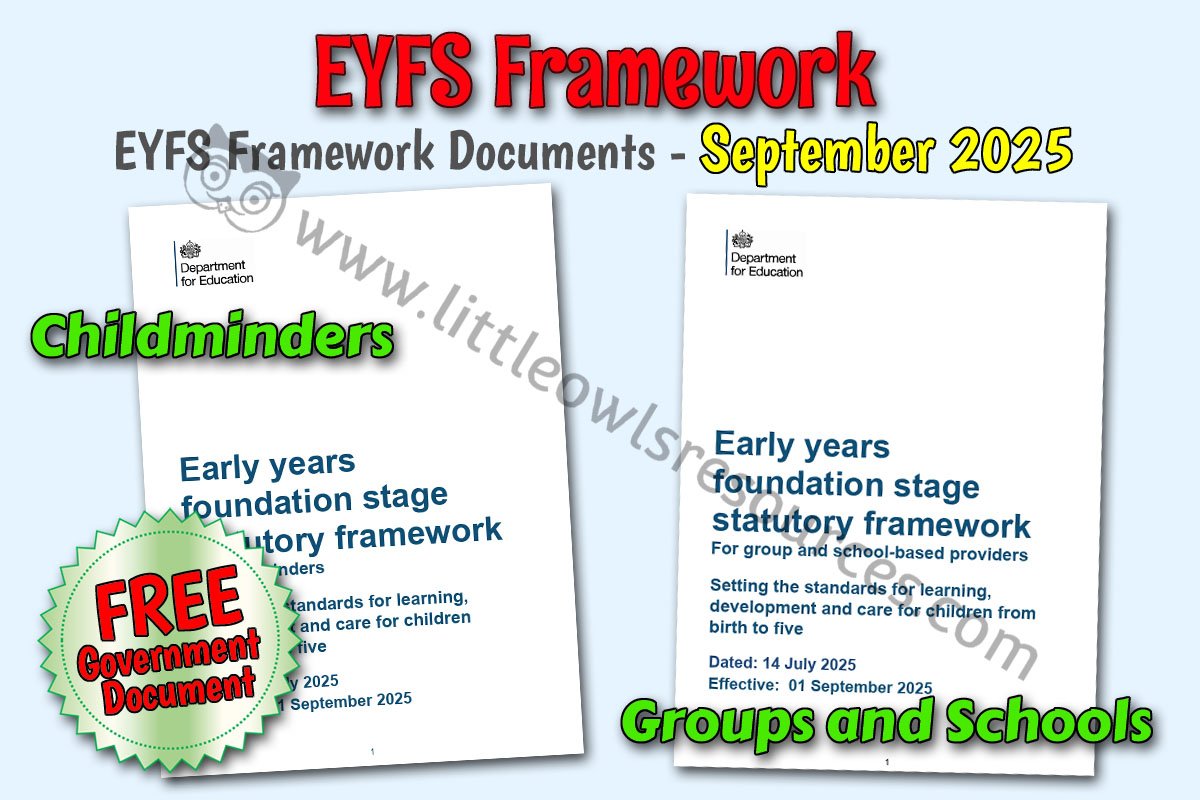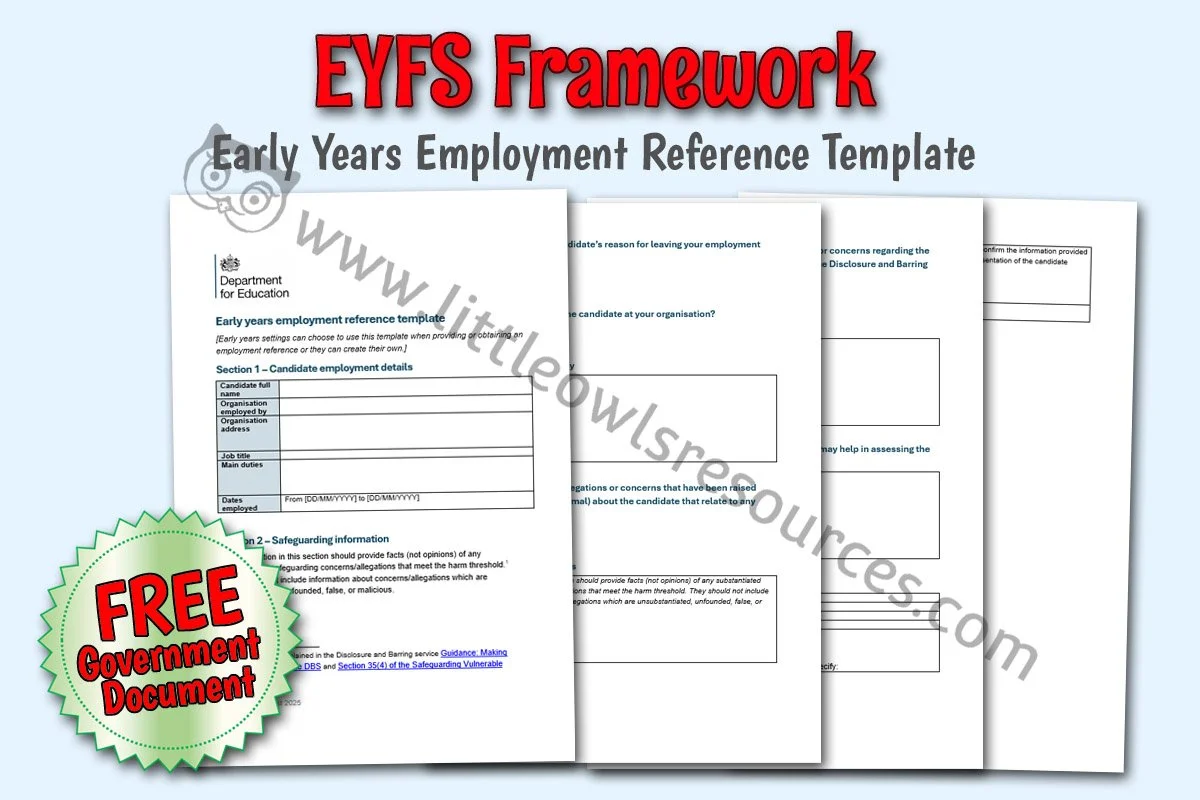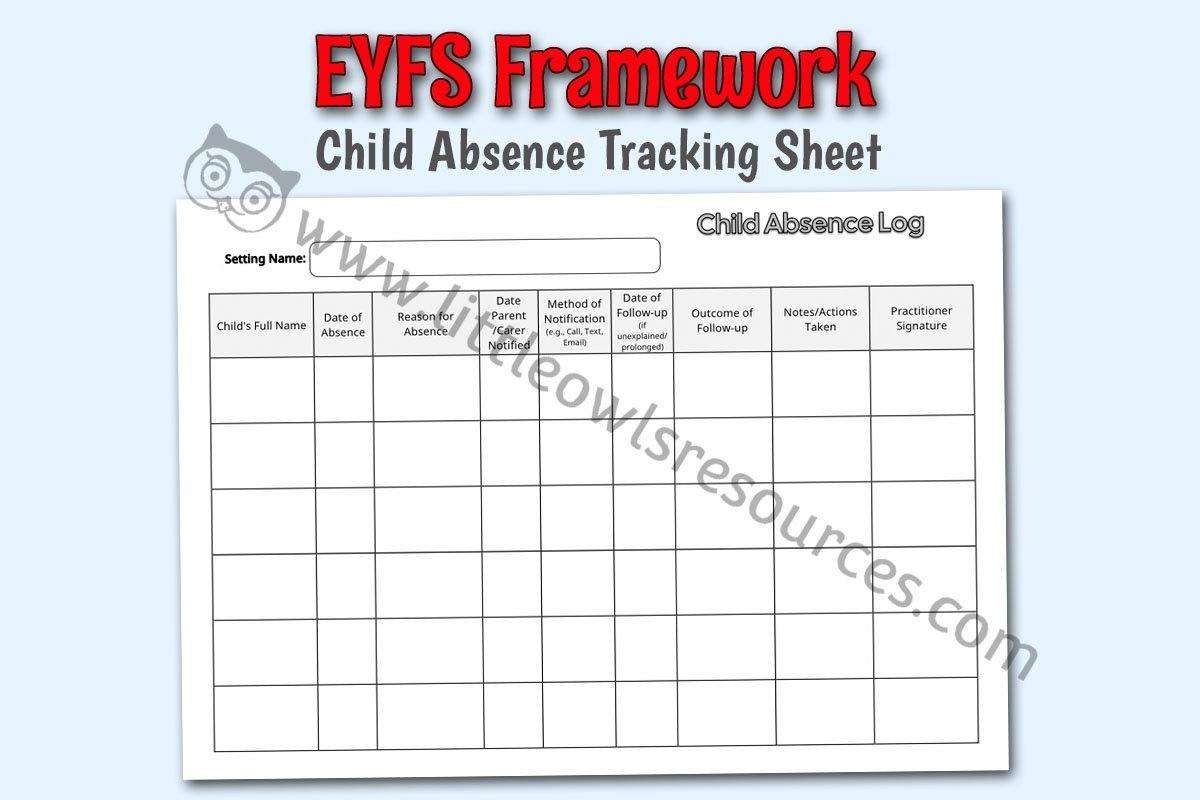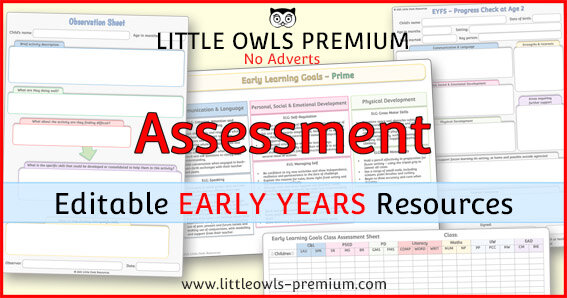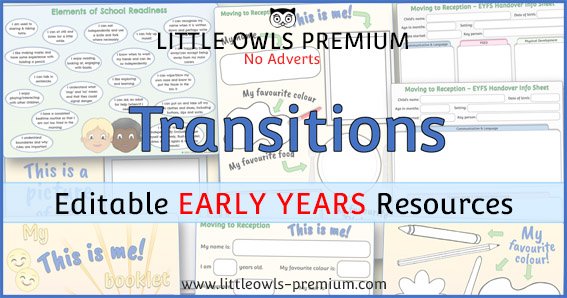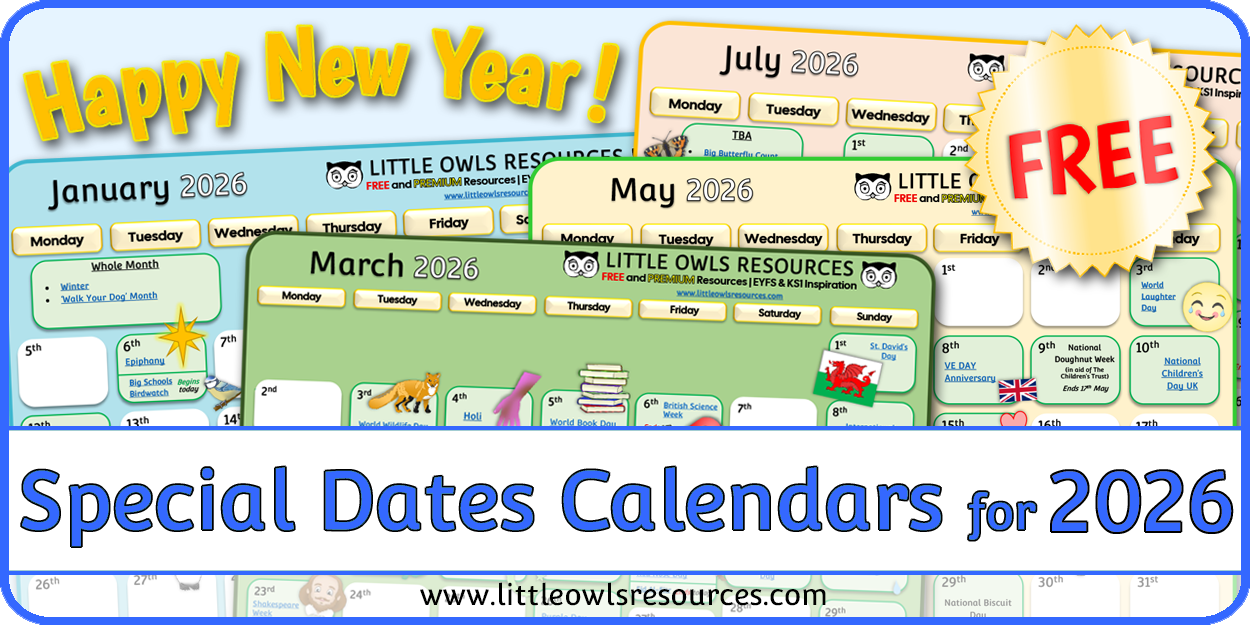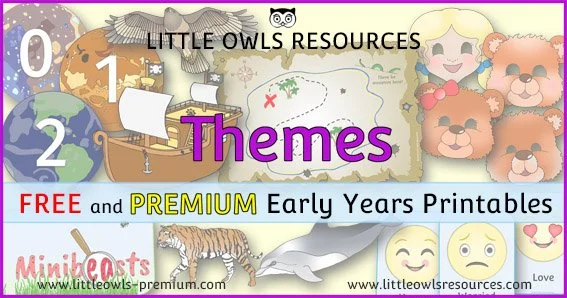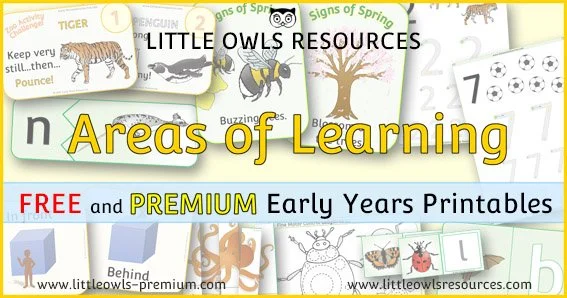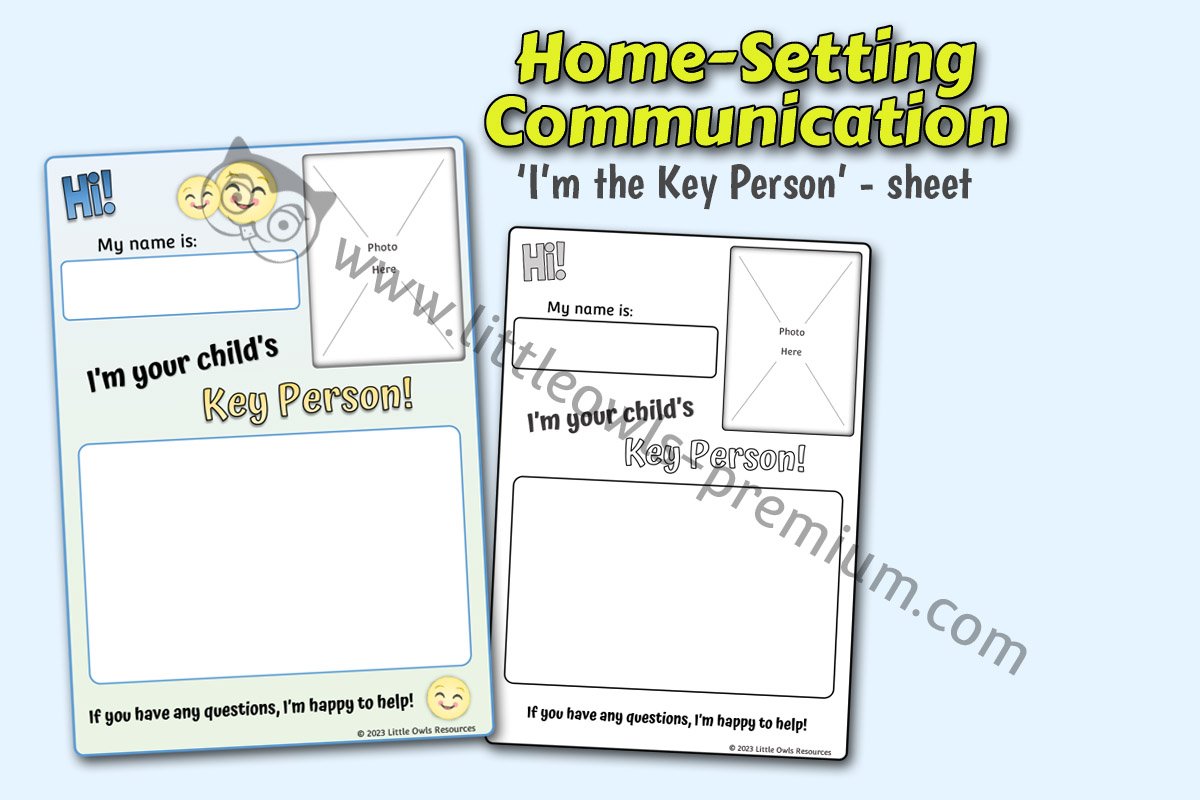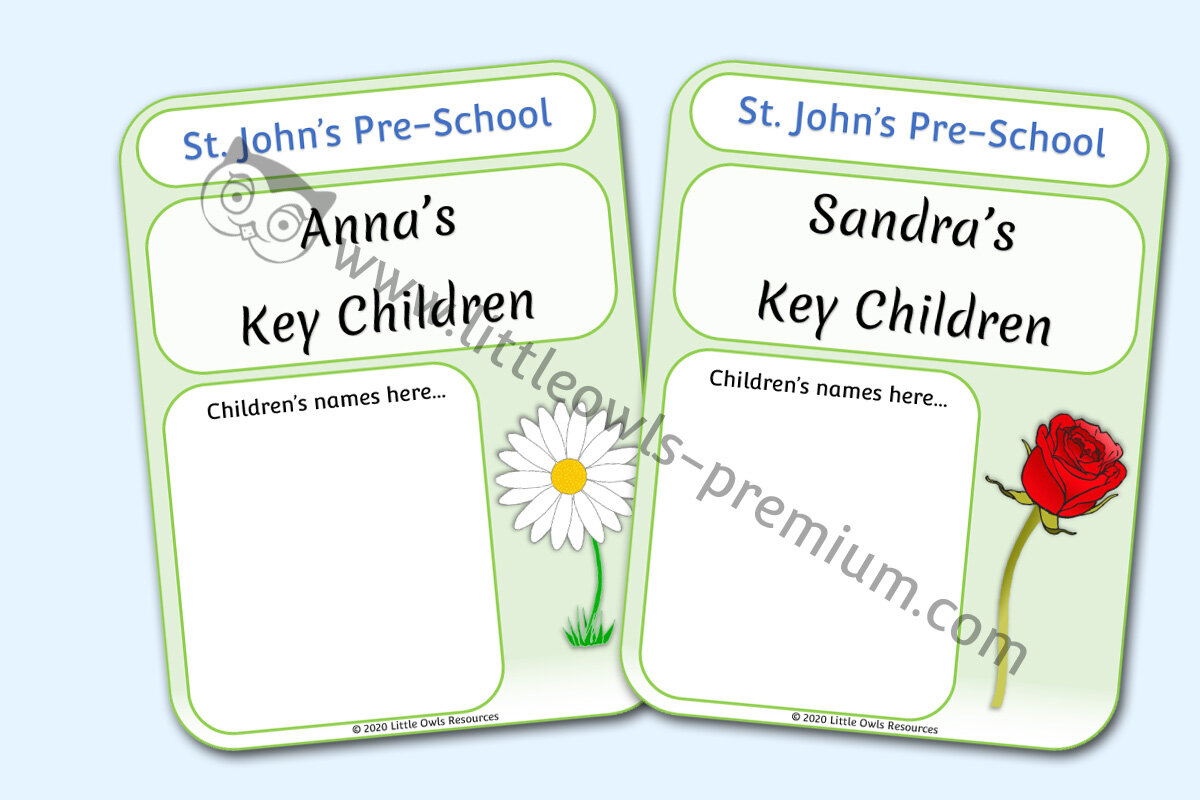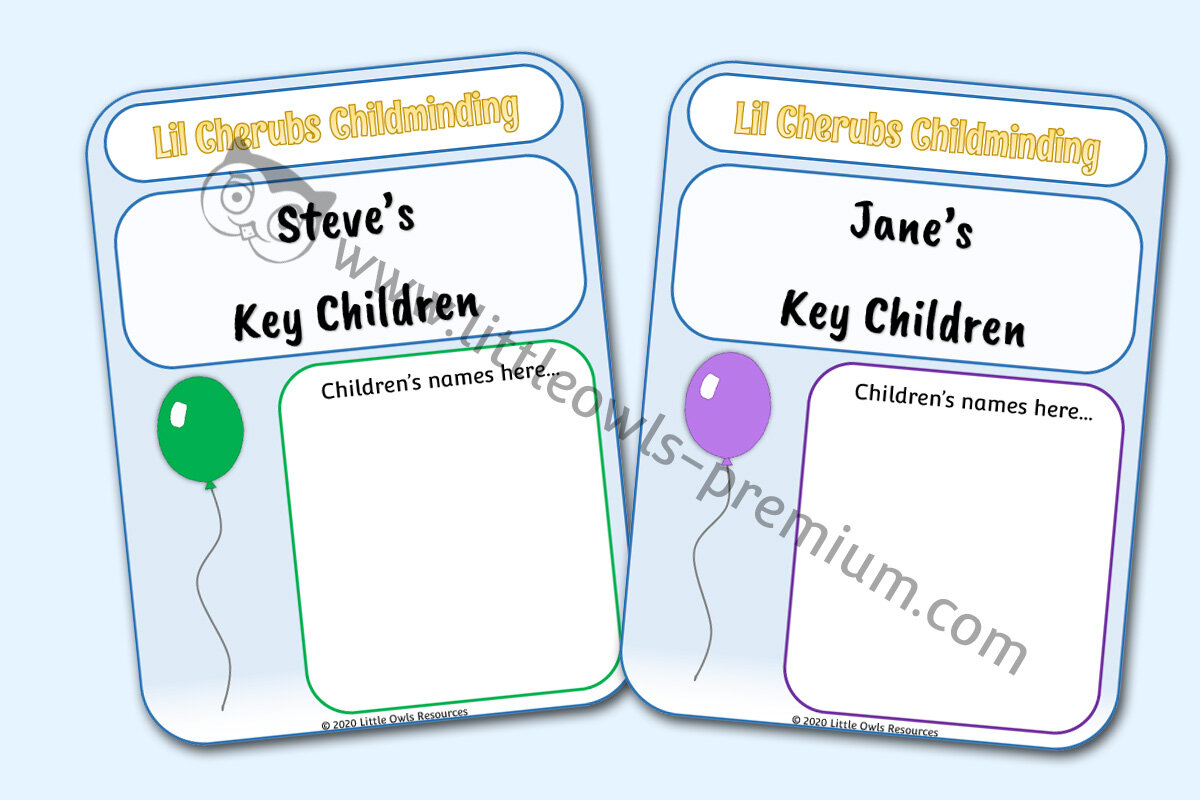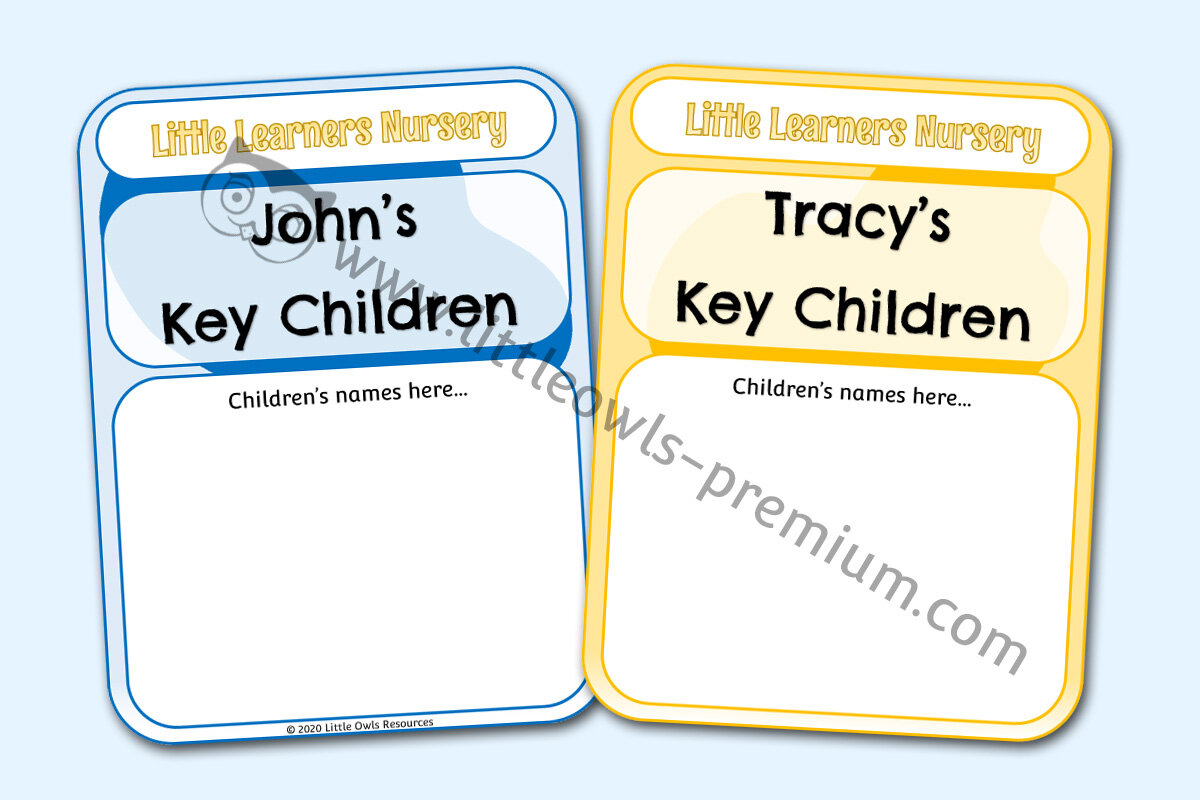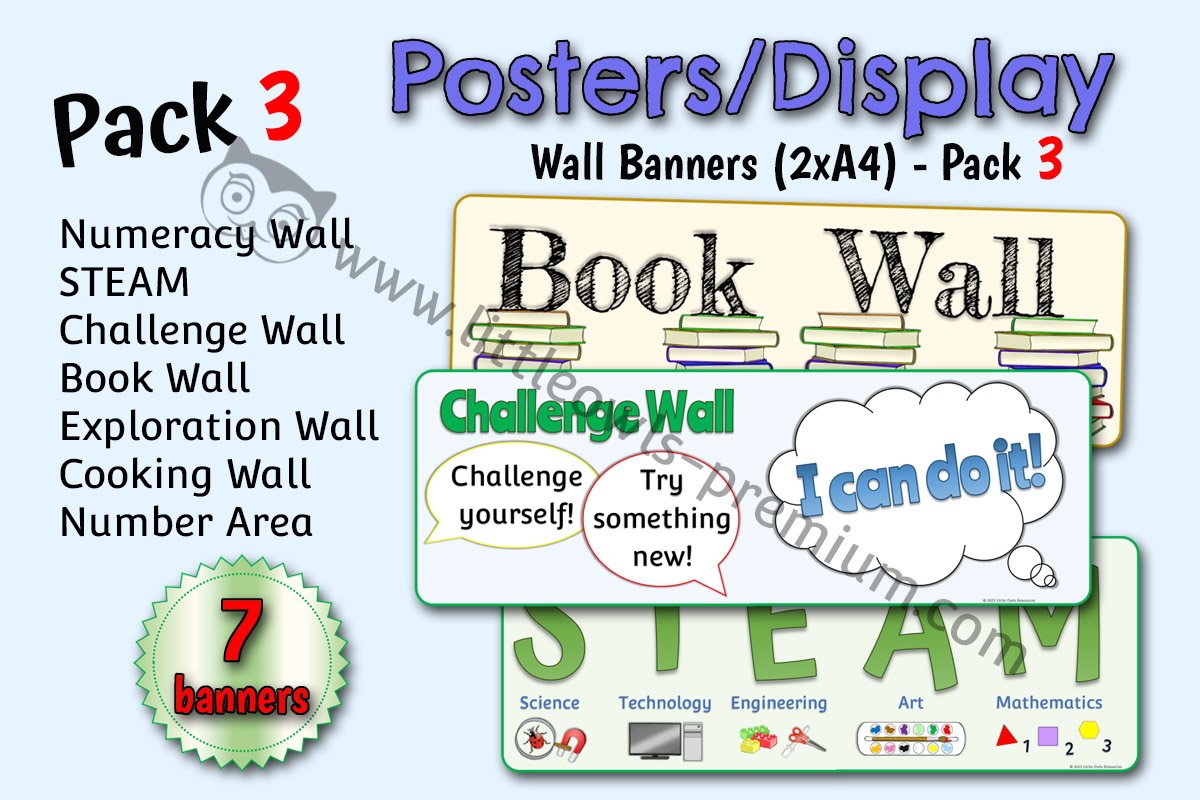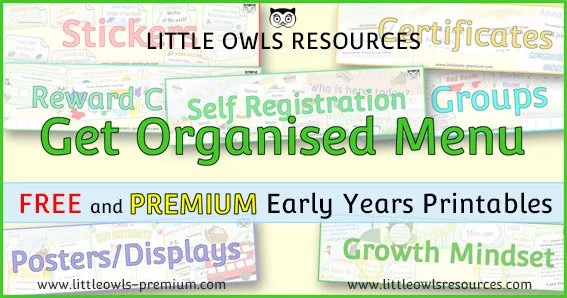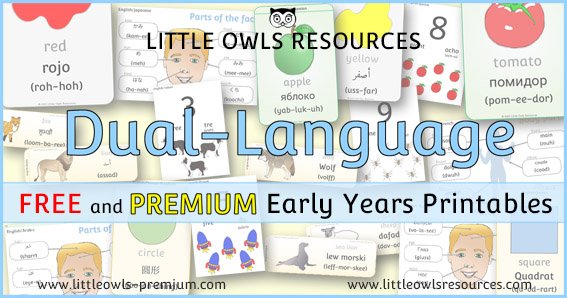New Revised EYFS Framework 2025: Early Years Paperwork, resources, activities and ideas
Planning, Assessment & Record Keeping paperwork & tools for Childminders, Nurseries, Preschools & Reception. Our extensive collection of EYFS Statutory Framework editable support material includes a wealth of valuable resources regarding Safeguarding, Overarching Principles and Learning & Development. Explore Areas of Learning, Health, Age 2 Progress Check resources and much more!
SECTIONS ON THIS PAGE:
Free Resources (Including Original DfE Documents)
CHANGES to the EYFS Statutory Framework as of September 2025 - Learn more at the following blog posts:
‘OVERARCHING PRINCPILES’
Ethos Building Posters & Displays (including ‘Characteristics of effective teaching and learning’, ‘Overarching Principles’ & ‘Seven key features of effective practice’)
‘LEARNING AND DEVELOPMENT’ & ‘ASSESSMENT’
Planning and Assessment Tools
‘SAFEGUARDING AND WELFARE’
Key Person
Information and Records (including ‘Risk-Benefit’ & ‘Child Record’ Forms)
New resources created to assist alignment of Safeguarding practice with the revised EYFS Framework 2025
Health & Safety
EAL (English as an additional language) - more coming soon!
SEND (Special Educational Needs and Disabilities) - more coming soon!
Additional Resources you may be interested in
FREE ‘EYFS Framework’ Printables | Early Years
(Click on the images below to find out more)
If you are not a member already, become a ‘Free Access’ member here. This will give you access to resources within the ‘Free Sample Resources’ sections at the top of most pages and ‘Special Dates Calendars’. Some whole topics are even free! Find out more about all of our membership options here. If you are already a member… thank-you! x
Please note that both Editable (docx file) and non-editable (pdf file) versions are available for most of our ‘EYFS Framework’ resources.
(Editable files require Microsoft Word to work at optimum level and Non-Editable files require a pdf viewer.)
Summary of changes to the ‘EYFS Statutory Framework’ from September 2025
Download the NEW 2025 Early Years Foundation Stage Statutory Framework Documents.
The changes from September 2025 are being made to strengthen the EYFS safeguarding requirements.
The main changes to be aware of are:
amendments to promote safer recruitment, including:
new expectations to provide references
requirements to obtain references
a requirement for safeguarding policies to include procedures to help ensure that only suitable individuals are recruited
new requirements for providers to follow up if a child is absent for a prolonged period of time and amendments to ensure providers hold additional emergency contact details
new requirements to ensure safer eating
the creation of a safeguarding training criteria annex and a requirement for safeguarding policies to include details of how safeguarding training is delivered, including how practitioners are supported to put it into place
amendments to ensure that early years students and trainees are required to have paediatric first aid (PFA) training for them to be included in ratios at the level below their level of study
new requirements to support whistleblowing
amendments to ensure that children’s privacy during nappy changing and toileting is considered and balanced with safeguarding considerations
A small number of other minor changes to the structure and wording of the safeguarding requirements have been made to improve clarity.
For additional information regarding the changes from September 2025, please refer to the following articles:
Each article linked below has been written with the specific provider type in mind and highlights new and adapted resources created by our Little Owls Resources team to help you with this transition.
With the new 2025 EYFS Statutory Framework for group and school-based providers coming into effect on 1st September 2025, it's essential to understand the updates to ensure your practice remains compliant, effective…
As dedicated early years professionals, you play a vital role in nurturing the growth and development of our youngest learners. Keeping up-to-date with the latest guidelines is crucial, and today, July 14, 2025…
Latest Safeguarding resources to align your practice with the New 2025 EYFS Statutory Framework:
⭐OVERARCHING PRINCIPLES⭐
Ethos Building Posters & Displays, including ‘Characteristics of Effective Teaching and Learning’ and ‘Seven Key Features of Effective Practice’
Click on the thumbnail images below for further details…
⭐LEARNING AND DEVELOPMENT⭐ & ⭐ASSESSMENT⭐
Planning & Assessment Tools
Find more ‘Planning’, ‘Assessment’ and ‘Transition’ resources on the following pages…
Find more resources to aid your planning on the following pages: ‘Areas of Learning and Development’, ‘Special Dates Calendar’, ‘Festivals and Celebrations’, ‘Awareness Dates’, ‘Themes’, ‘All Topics’ and ‘Keywords’.
Areas of Learning
“There are seven areas of learning and development that must shape educational programmes in early years settings. All areas of learning and development are important and inter-connected.” EYFS Framework
Browse our ‘Area of Learning’ pages…
(Our learning resources categorised by ‘area of learning’)
Prime
(These “three areas are particularly important for building a foundation for igniting children’s curiosity and enthusiasm for learning, forming relationships and thriving”.)
Specific
(“Providers must also support children in four specific areas, through which the three prime areas are strengthened and applied.”)
⭐SAFEGUARDING AND WELFARE⭐
Key Person
Information and Records
Health
The EYFS Statutory Framework states: “The provider must promote the good health, including the oral health, of children attending the setting.”
You may find some of the resources within our free topics ‘Teeth and Oral Health’ and ‘Food’ useful.
More Health topics available on the following menu page…
(including ‘Mental Health’, ‘Handwashing & Hygiene’, ‘Emotions and Feelings’, ‘Exercise’, ‘Sun Safety’ and more!)
English as an additional language
“For children whose home language is not English, providers may take reasonable steps to provide opportunities for children to develop and use their home language in play and learning, supporting their language development at home.” EYFS Framework
We are developing a set of ‘Dual-Language' resources which you may find helpful.
Outdoor Play
Providing children with opportunities for outdoor play is essential. We are developing an 'Outdoor Area’ page on which we hope you will find some helpful resources.
SEND
“Children develop and learn at different rates”… “The framework covers the education and care of all children in early years provision, including children with special educational needs and disabilities (SEND).” EYFS Framework
Resources on our site pay mind that children develop and learn at different rates. Our ‘Picture Communication’ resources may be particularly useful with SEND in mind. In addition we have recently developed an ‘Autism’ hub page.
Special Dates
“Understanding the world involves guiding children to make sense of their physical world and their community.” EYFS Framework
Additional Resources you may be interested in…
‘SCIENCE’ (Understanding the World) ACTIVITY PACKS
- More coming soon!
‘Outdoor Area - Activity Card Packs’
- more coming soon!
Activities based on ‘birth to 3’, ‘3 or 4 year olds’ and ‘reception’…
‘Interactive Challenge Display Packs’
Activities based on ‘birth to 3’, ‘3 or 4 year olds’ and ‘reception’…
SEARCH ‘LITTLE OWLS-PREMIUM’ USING THE FOLLOWING MENU BUTTONS…
This page contains public sector information licensed under the Open Government Licence v3.0.


